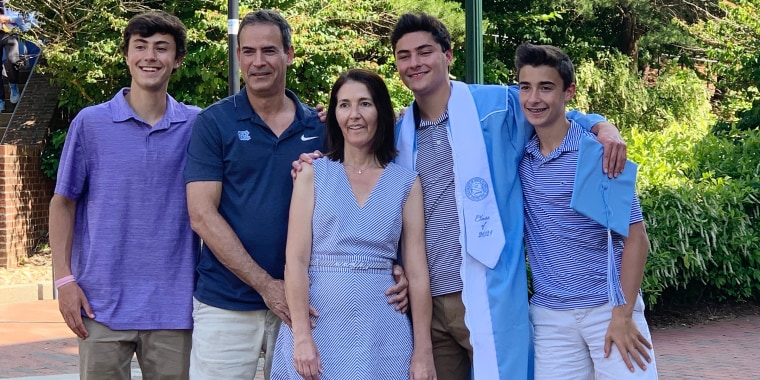When Lisa Stockman Mauriello learned that she had bulbar amyotrophic lateral sclerosis, a rare and aggressive form of ALS, she did what she always did: She took action. Her campaign for expanded access to a medication in clinical trials encouraged the company to offer the drug earlier to her and many others. Unfortunately, Stockman Mauriello’s condition had already progressed so quickly that she died in August, just one year after developing ALS symptoms.
While her family feels devastated, they hope her advocacy for expanded access to medications for fatal conditions remains her lasting legacy.
“There’s definitely a lot of people who think that her battle will result in some change,” Bob Mauriello, Stockman Mauriello’s husband, told TODAY. “No one wants to feel like a loved one died in vain … We’ve received beautiful letters from various ALS organizations about how Lisa has advanced ALS research in six months — more than they have been able to do in four or five years because of the amount of press coverage (her story) received.”
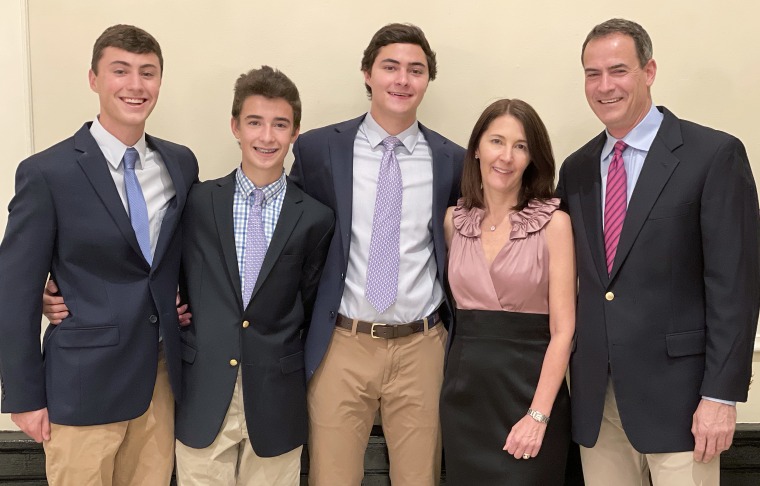
The 52-year-old mom of three became an advocate because she wanted to live long enough to see her sons graduate from college, high school and middle school. She had hoped the drug, Biogen's tofersen, would slow the progression of her symptoms.
“She was able to attend all three graduations and she was very proud of them all,” Mauriello said. “They all did really well.”
Devastating diagnosis leads to advocacy
In August 2020, Stockman Mauriello was surprised to find that she became easily winded when walking her dogs. For more than a decade, she woke up at 5 a.m. to attend a boot camp and had always been physically active. Then she noticed that calling her dogs inside became increasingly difficult because her voice faltered. While drying her hair, she struggled to lift her left arm. She visited her doctor to understand what caused these symptoms.
“Her primary doctor started to be concerned. First, it was diagnosed maybe that she had some paralyzed vocal cords,” Mauriello told TODAY in May. “Paralyzed vocal cords would explain the losing her voice, kind of laryngitis type of thing. But it wouldn’t explain the other symptoms so he kept getting tests done.”

Tests indicated that a neurological condition caused Stockman Mauriello’s symptoms. And in January 2021 she learned she had bulbar-onset ALS. Most often, ALS starts in the limbs, but bulbar ALS impacts the face and neck first, according to the ALS Therapy Development Institute.
“It’s more of a 12-month expected lifespan,” Mauriello said.
Stockman Mauriello’s symptoms progressed quickly. By May she couldn’t walk more than “20 or 30 feet,” was unable to talk and couldn’t hold a pen to sign her name. She needed a machine to help her breathe between 16 and 18 hours a day.
At her son’s May graduation, though, she stood for pictures.
“She was in the best shape because she didn’t have to wear the respirator the whole time,” Mauriello explained. “She was in a wheelchair but she could even stand with a little bit of support.”
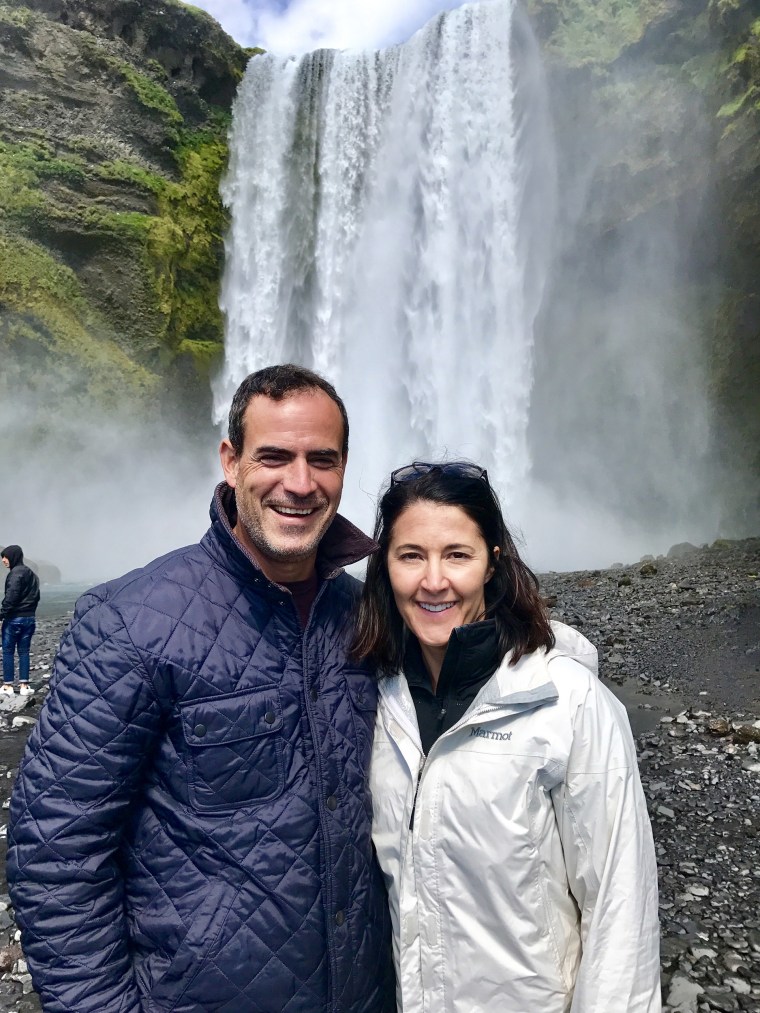
For the following two graduations, she sat in her wheelchair. But she still beamed with pride at her sons.
“She didn’t seem to be getting any worse from the graduations to her birthday. She seemed pretty stable,” Mauriello said. “Part of that might have been that there just wasn’t much that could happen at that point. She couldn’t walk anymore. She couldn’t talk. She had to breathe through a ventilator. She had to eat through a tube. She couldn’t use her hands to text or type.”
Soon after she was diagnosed with ALS, she learned about tofersen. The family and her doctors believed that this medication could slow the progression of her symptoms. She petitioned the company for expanded access through the 2018 Right to Try Act, which allows patients to request to use experimental drugs if they cannot be involved in clinical trials. Still, a company can deny the request and, in this case, the company said it could not offer her the drug until July.
In a statement shared with TODAY in May, the company said, in part:
We do not believe it is fair to ask participants in this study to continue to receive placebo while other SOD1-ALS patients are offered access to tofersen, but we do believe that access could be provided as soon as the placebo-controlled study has ended. However, until the safety and efficacy have been established, we will prioritize early access for a subset of the most rapidly progressing patients with this rare, severe disease.
The family felt frustrated.
“That’s profoundly disappointing to us given the progression of Lisa’s disease,” Mauriello told TODAY in May. “But it’s gratifying to know that this campaign that Lisa has been at the center of, but not at all alone in … really (will) positively impact more people.”
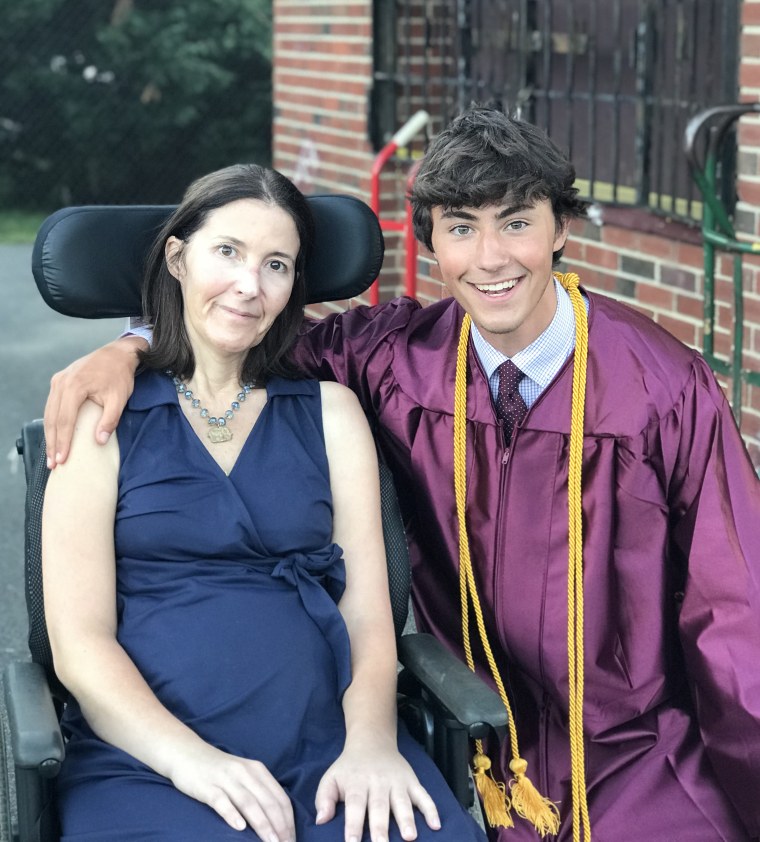
Stockman Mauriello finally received her first dose of tofersen on July 22.
“We were getting really excited that maybe the tofersen would probably start to show some of the benefits that we had been hoping for,” Mauriello said. “She was able to move the wheelchair around. She was driving around the garage and so it seemed she might be getting some independent mobility back.”
Her next shot was scheduled for August. But she died before receiving it.
“Most ALS patients, they have like a three- to five-year lifespan,” Mauriello said. “With the gene variant that she had, and the fact that it manifests itself as bulbar ALS or respiratory, hers was just fast (progressing), which is why we tried so hard to get the drugs faster (and) why we were saying it was going to be too late.”
Lisa’s legacy
When Stockman Mauriello first became sick, Mauriello felt pleasantly surprised by how many people reached out to share how much of an impact she made on their lives. That has continued.
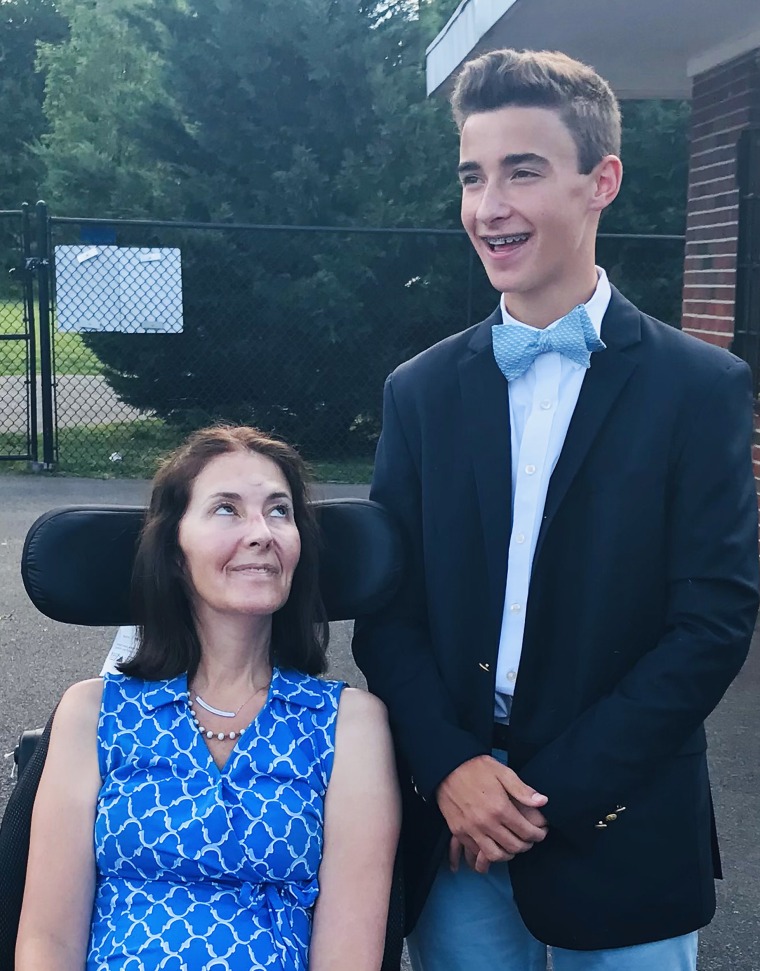
“She was good at everything that she touched,” Mauriello said. “She was a mother to three kids who are all flourishing. She was a hall of fame public relations executive. She was a great wife. Friend to thousands. Mentor to hundreds and a teacher.”
In addition to the influence she had on her family, friends, coworkers and professional colleagues, her battle to receive tofersen affected many others that she had never met.
“There’s a lot of people, I believe dozens, who have been able to get extended access,” Mauriello said. “They wouldn’t have had access if it wasn’t for Lisa and pretty much all of those folks were at a much less advanced stage than Lisa was. For those people, it could have stopped the progression.”
Mauriello is still dedicated to ALS advocacy. Like others, he is hopeful that the Accelerating Access to Critical Therapies for ALS Act, signed into law by President Biden last week, will lead to advances in treatments that allow ALS patients to live longer and thrive.
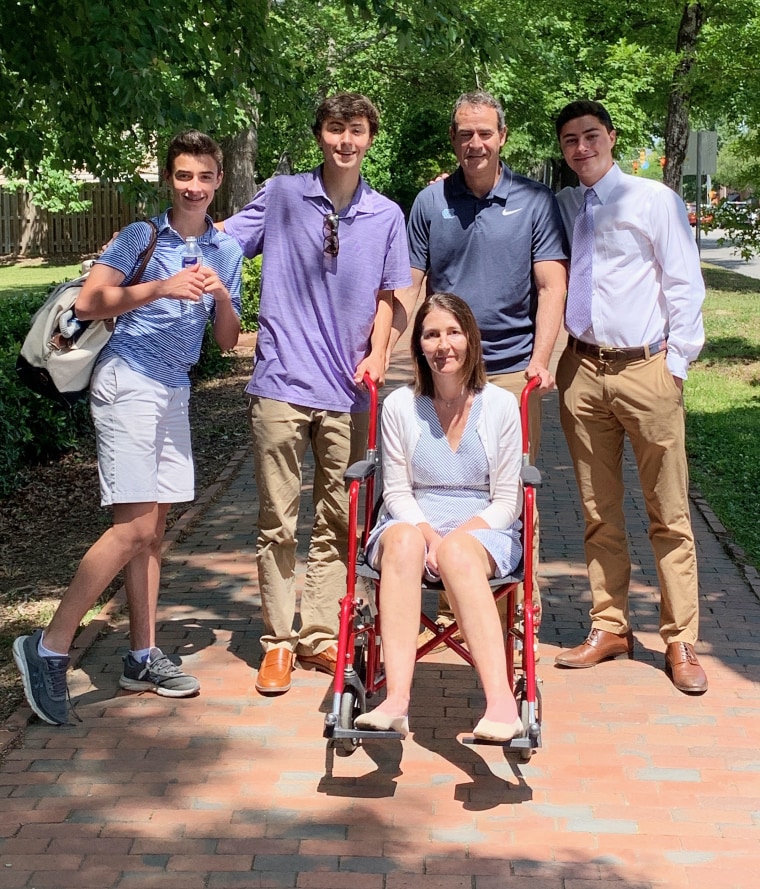
He also reflects on the positive impact his wife made.
“I’m proud of what she was able to accomplish,” he said. “But if you knew her, it’s not surprising she had such an impact. She didn’t do anything half-assed.”
